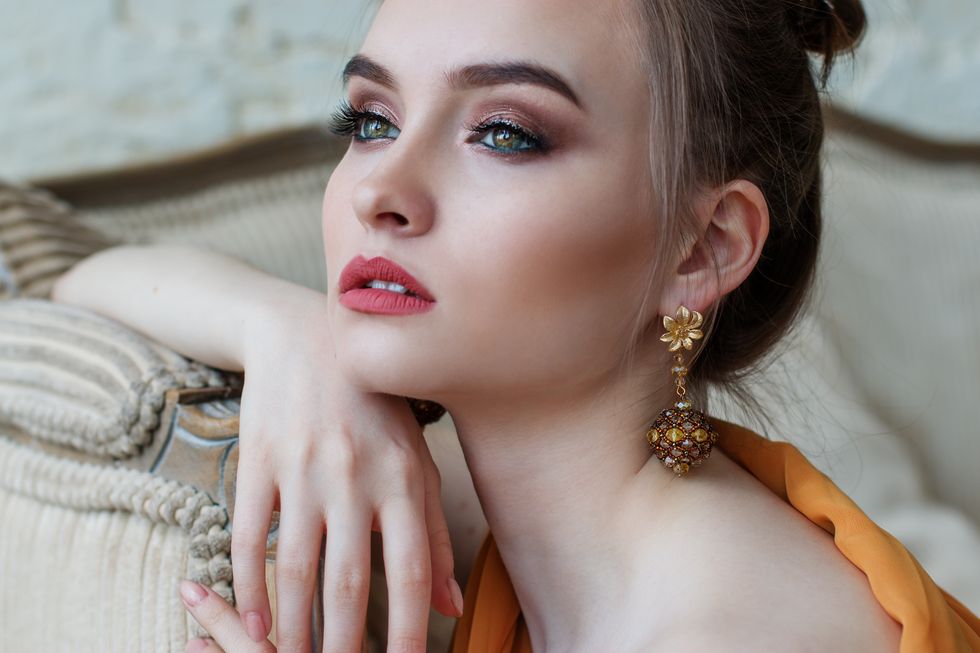Makeup, beauty, and presentability are often used in the same sentence without much thought of why they are associated with one another. While makeup is not every person’s “cup of tea,” there is no avoiding the fact that there is a psychological connection between makeup, the person wearing it, and the people looking at your makeup (or lack thereof). Today I thought it’d be fun to see what some of what these connections entail!
One of the factors that contributed to my interest in the psychology behind makeup was that I often found myself turning to doing my makeup whenever I felt overly anxious.
Watching Netflix while playing with my eyeshadow and experimenting with a new contour palette calmed my nerves and took my mind off of whatever was bothering me. Turns out, this method of relaxation wasn't only something I was experiencing, but according to Teen Vogue article, "How Makeup Can Affect People Dealing With Anxiety and Depression," a few girls quoted in the article explained how doing their makeup gave them something to focus on as a distraction from their thoughts, brought peace to their everyday lives, and gave them control over something in their lives when, as licensed professional counselor Katherine Glick explained, "In a world where most things are out of our control, what we can control is us."
Another interesting psychological take on the influence of makeup is explained in a study done in 2016, which explained how when computerized female faces, some with makeup and some without, were shown to a group of men and women, solely women viewed the makeup wearing face as more dominant while only men viewed the women as having "higher prestige." The study also
According to New York Times article, "Up the Career Ladder, Lipstick In Hand," written in 2011, "Wearing makeup — but not gobs of Gaga-conspicuous makeup — apparently can help. It increases people’s perceptions of a woman’s likability, her competence and (provided she does not overdo it) her trustworthiness, according to a new study, which also confirmed what is obvious: that cosmetics boost a woman’s attractiveness."
According to author of the study ("Cosmetics as a Feature of the Extended Human Phenotype: Modulation of the Perception of Biologically Important Facial Signals" conducted by Nancy L. Etcoff ,Shannon Stock, Lauren E. Haley, Sarah A. Vickery, and David M. House in 2011) and Proctor & Gamble scientist, Sara Vickery, wearing deeper and shinier lip colors can portray a more powerful look, while other looks that are more toned down may also work in your favor depending on the situation.
While wearing makeup holds many benefits, it is also important to remember the downsides of these benefits, in that those who do not wear makeup may have their decision work against them in some ways due to bias. As explained by Professor Deborah Rhode of Stanford University:
“The quality of my teaching shouldn’t depend on the color of my lipstick or whether I’ve got mascara on.”
Although I have only explained a few examples and only touched on the details of each study mentioned, it is interesting to take a look at the different ways makeup influences our psyche both as wearers and as observers of makeup. Makeup provides the freedom to express yourself the way you want and contribute to feeling whatever way you choose.
Nevertheless, whether you are a girl or a boy, makeup is an art form that should be allowed to be appreciated by everybody, without being perceived as



















